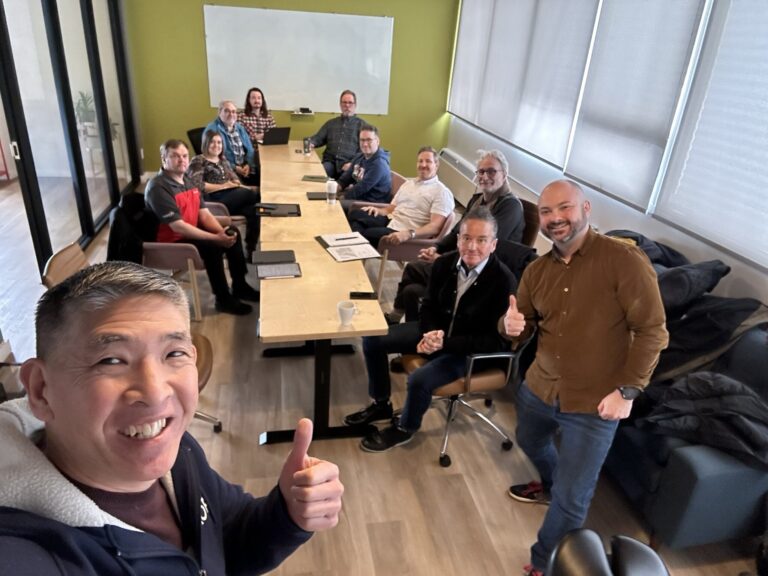15 February 2018
Social Lending – Innovation in Social Finance
This is the second post in our series about social finance tools and our view on how they can be applied in various contexts.
In the first post of our series on Social Finance, Jerome Lengkeek, Urban Matters’ Social Finance Lead, gave us a comprehensive look at Seed Funds. This time, he tackles a more broad category within social finance: social lending.
Social Lending – Types of Loans
There are many types of loans within social finance. They vary by: structure, length and types of guarantee or security. This allows the social investor and the borrower to create a deal which meets the needs of both parties.
Loans can be set up as term loans with regular repayments over a fixed amortization period, or as a revolving loan (i.e. a line of credit).
Typically this depends on whether the loan is for capital expenses or to assist with project or operating expenses, but when the investor’s motivation is more social than financial it can also be structured based on the borrower’s unique cash flow needs.
Term lengths or amortizations similarly vary based on the type of loan, but again some investors are willing to delay repayments in order to magnify the social impact.
Guarantees or security can range from a personal guarantee from a social entrepreneur to get a start-up loan, to a commercial mortgage against a real estate asset for a non-profit wanting to own its own building and create some non-grant revenue by sub-leasing surplus space.
In some cases, the lender or investor grants loans that in the financial system would seem to not make sense. For example, a social lending fund might try to stimulate a specific type of social enterprise or charitable activity by offering loans at below market interest rates with delayed repayments and no guarantees or security.
Social Lending – Types of Lenders
There are a wide variety of institutions offering social finance in the Canadian system. These are a few examples from coast to coast, giving an idea of some of the creative ways that social progress and innovation is being stimulated.
Aboriginal Focus – These are also sometimes referred to as Aboriginal Finance Institutions or AFIs. These are specialized lenders which offer loans to members of First Nations communities, usually with an objective of stimulating economic activity.
One good example of an AFI in Canada is Indian Business Corporation (IBC). IBC operates through First Nations in Western Canada, and over the last 30 years has given out loans to over 2,500 business or business expansions, creating thousands of jobs.
Community Loan Funds – There are many forms of community loan funds in existence, with social purposes generally tailored to addressing the most pressing local needs.
The Saint John Community Loan Fund (New Brunswick) was founded nearly 20 years ago in response to serious poverty and unemployment issues. A handful of social entrepreneurs had the vision of a loan fund which could advance credit to people who wanted to create jobs and start new businesses. This loan fund has grown steadily and by now has a track record of success with social purpose real estate and several specialized funds including a social enterprise fund and one focused on women who want to start a business but do not have the capital required to get it off the ground.
By re-using the capital that is repaid from the loans granted by their different programs, they are able to continue offering support and social benefits to the Saint John community with far less grant support than would otherwise be needed.
Social Enterprise Funds – Some other communities have loan funds that are dedicated exclusively to funding social enterprises. A successful and well-established example is the Social Enterprise Fund in Edmonton. This fund recognizes that social enterprises come in many shapes and forms, and that the creativity of social entrepreneurs often results in an operation that doesn’t tick all of the right boxes on a standard bank loan application.
The offer patient lending to a social enterprise using a broad definition of social benefit. Due to the steady efforts of a small professional staff, a substantial community of successful social enterprises in Edmonton has been allowed to expand their impact on the community.
Credit Unions – There is a long tradition of credit unions across the country working with both non-profits and socially motivated business start-ups. Their closer links to communities help them to have a better understanding of local needs, and their cooperative ownership structure supports the granting of some loans that are less financially rewarding to the lender but which promise significant community benefit.
One credit union with a very strong track record in this regard is Vancity. Some of their efforts include the co-creation of the Resilient Capital program with the Vancouver Foundation, loans to social enterprises and non-profits, and the provision of supporting grants and mentorship to certain borrowers.
Innovation in Social Lending
The various types of lenders described above have all shown innovation in the types of lending offered to organizations that create social benefit. In many cases, these lenders offer concessionary terms or take greater risk in order to drive social impact.
Urban Matters has also been working with flexible lending models to assist its incubated social ventures to get their operations off to a healthy start and support rapid growth. In working with start-ups, we have found that some of the things which can make a big difference to them in the fragile first year or two are to offer an opportunity for some ongoing support of operational costs, delayed start or greater flexibility on repayment schedule, and reducing or eliminating the burden of interest costs.
Our incorporation model as a Community Contribution Company (social enterprise) in B.C. allows us to pursue maximization of the social impact that new and innovative social ventures can deliver without being held hostage to a minimum financial return or fixed schedule.
There are a wide variety of organizations offering social lending across Canada, and they are showing increasing inventiveness to maximize social impact and ensure that the borrower is able to repay the loan so that the capital can be repeatedly recycled. If you are a social enterprise looking for growth capital, we encourage you to seek a partner that will support your desire to generate social returns and not just a financial one.
Additional reading: Jerome’s overview on Social Finance, and a further look into Seed Funds
This article was written by our Social Finance Lead, Jerome Lengkeek. He helps improve the financial sustainability and impact of the social enterprises that are part of our incubation family. As a member of Urban Matters’ team of community social innovation specialists, Jerome is available as a resource to help other community impact organizations achieve some of these same objectives. Have a question, or want to talk to us more about social finance, Jerome would love to hear from you. You can reach him at jlengkeek@urbanmatters.ca.




